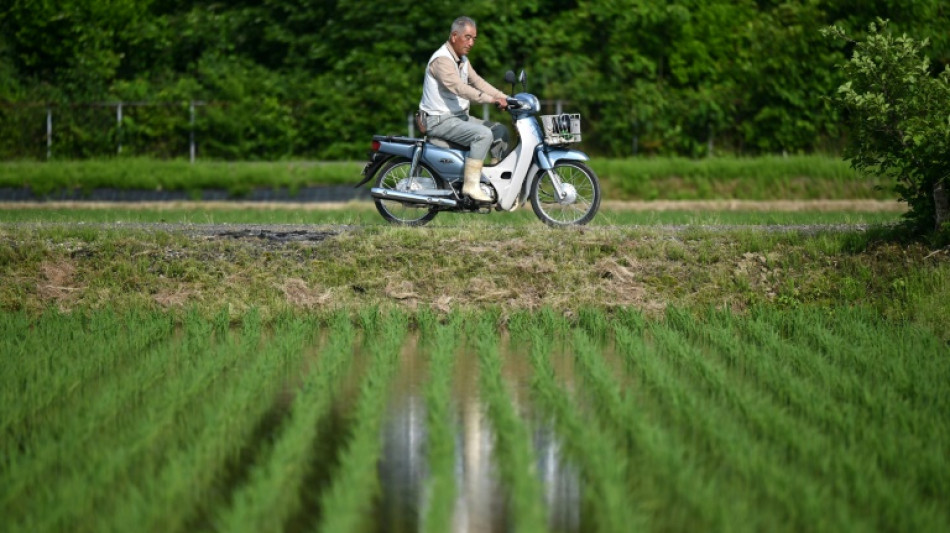
-
 No handshake again as India bowl against Pakistan in Asia Cup final
No handshake again as India bowl against Pakistan in Asia Cup final
-
Zverev downs racket-smashing Moutet in Beijing as Gauff digs deep

-
 Leverkusen's Schick set for spell on sidelines
Leverkusen's Schick set for spell on sidelines
-
Massive Russian missile and drone barrage kills four in Kyiv

-
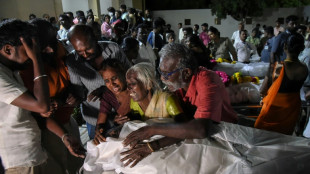 Indian actor-politician's aides charged after rally stampede kills 40
Indian actor-politician's aides charged after rally stampede kills 40
-
England still have 'another peak to climb' after Women's Rugby World Cup triumph

-
 Real Madrid's Carvajal Clasico doubt after calf injury
Real Madrid's Carvajal Clasico doubt after calf injury
-
Moldova votes in tense polls, torn between EU and Russia

-
 Alcaraz makes light of injury to reach Japan Open semis
Alcaraz makes light of injury to reach Japan Open semis
-
Slips, salt and stripes: key looks from Milan fashion week

-
 Gauff digs deep to keep China Open title defence alive
Gauff digs deep to keep China Open title defence alive
-
Russian missile and drone barrage kills four in Kyiv

-
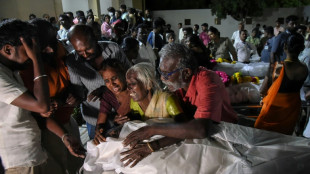 Massive crowd, chaos preceded deadly India rally stampede
Massive crowd, chaos preceded deadly India rally stampede
-
Russian missile and drone barrage kills four: Kyiv

-
 Iran denounces 'unjustifiable' return of UN sanctions
Iran denounces 'unjustifiable' return of UN sanctions
-
Emotional Marquez in tears after winning seventh MotoGP title

-
 Emotional Marquez win seventh MotoGP world championship
Emotional Marquez win seventh MotoGP world championship
-
Russia pounds Ukraine with 'hundreds' of drones and missiles: Kyiv

-
 Wallabies record-holder Slipper hints Perth could be final Test
Wallabies record-holder Slipper hints Perth could be final Test
-
Son brace fuels LAFC as Messi frustrated in Miami draw

-
 US actress-singer Selena Gomez weds music producer Benny Blanco
US actress-singer Selena Gomez weds music producer Benny Blanco
-
Pakistani parents rebuff HPV vaccine over infertility fears

-
 Women's cricket set for 'seismic' breakthrough at World Cup
Women's cricket set for 'seismic' breakthrough at World Cup
-
New Zealand fly-half Barrett out of Australia rematch

-
 Moldovans torn between pro-EU and pro-Russia vote in tense polls
Moldovans torn between pro-EU and pro-Russia vote in tense polls
-
Strings of identity: Kashmir's fading music endures
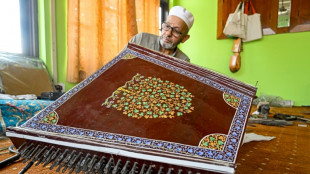
-
 'Clog the toilet' trolls hit Indian visa holders rushing to US
'Clog the toilet' trolls hit Indian visa holders rushing to US
-
Bradley: USA Ryder Cup disaster part of why crowds angry

-
 Europe used 'anti-fragile mentality' to cope with Cup hecklers
Europe used 'anti-fragile mentality' to cope with Cup hecklers
-
Unbeaten McIlroy faces winless Scheffler in Ryder Cup singles

-
 Sweeping UN sanctions return to hit Iran after nuclear talks fail
Sweeping UN sanctions return to hit Iran after nuclear talks fail
-
Messi, Miami frustrated in Toronto stalemate

-
 Argentina protesters march for victims of live-streamed femicide
Argentina protesters march for victims of live-streamed femicide
-
Europe shrugs off intense abuse to reach brink of Ryder Cup win

-
 Injury-hit PSG reclaim Ligue 1 top spot ahead of Barcelona clash
Injury-hit PSG reclaim Ligue 1 top spot ahead of Barcelona clash
-
Understrength PSG reclaim Ligue 1 top spot ahead of Barcelona clash

-
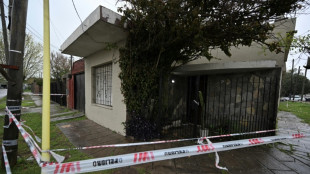 Argentina protesters seek justice for victims of live-streamed femicide
Argentina protesters seek justice for victims of live-streamed femicide
-
Palhinha rescues point for Tottenham against winless Wolves

-
 Springbok Feinberg-Mngomezulu an 'incredible talent' - Erasmus
Springbok Feinberg-Mngomezulu an 'incredible talent' - Erasmus
-
Mitchell backs England to sustain dominance after World Cup triumph

-
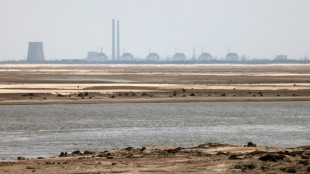 Zaporizhzhia nuclear plant off grid; Russia, Ukraine trade blame
Zaporizhzhia nuclear plant off grid; Russia, Ukraine trade blame
-
McIlroy fires back at hecklers in intense Ryder Cup atmosphere

-
 Two women die trying to cross Channel from France
Two women die trying to cross Channel from France
-
Huge Berlin protest urges end to Gaza war

-
 Liverpool 'deserved' defeat to Crystal Palace, says Slot
Liverpool 'deserved' defeat to Crystal Palace, says Slot
-
Bottega Veneta shows off 'soft functionality' in Milan

-
 Maresca blasts careless Chelsea after Brighton defeat
Maresca blasts careless Chelsea after Brighton defeat
-
Juve miss out on Serie A summmit with Atalanta draw

-
 Guardiola salutes dynamic Doku as Man City run riot
Guardiola salutes dynamic Doku as Man City run riot
-
Russia warns West as Ukraine secures Patriot defenses


Rice prices Japan's hot political issue, on and off the farm
All is calm at Satoshi Yamazaki's rice farm, with its freshly planted rows of vivid-green seedlings, but a row over the cost of the staple in Japan is threatening to deal the government a blow at the ballot box.
Shortages of the grain caused by a supply chain snarl-up have seen prices almost double in a year, fuelling frustration over inflation -- and voters could let their anger be known in upper house elections due next month.
To help ease the pain for consumers and restaurants, the government started tapping emergency stockpiles in March, having only previously done so during disasters.
Yamazaki, who grows about 10 percent of his rice organically using ducks to eat pests, said he understands high prices are "troubling" for ordinary people.
But he stressed that thin profits are a concern for many of those who produce it.
"There's a gap between shop prices and what farmers sell rice for to traders and the like," he told AFP in the northern Niigata region.
"Not all the money paid at shops becomes our income," said Yamazaki, a 42-year-old father of seven.
A mosaic of factors lies behind the shortages, including an intensely hot and dry summer two years ago that damaged harvests nationwide.
Since then some traders have been hoarding rice in a bid to boost their profits down the line, experts say.
The issue was made worse by panic-buying last year prompted by a government warning about a potential "megaquake" that did not strike.
- 'Old' rice -
Meanwhile, the rising price of imported food has boosted the popularity of domestic rice, while record numbers of tourists are also blamed for a spike in consumption.
Farm minister Shinjiro Koizumi has pledged to cut prices quicker by selling stockpiled rice directly to retailers -- attracting long queues to some shops.
It appears to be working: the average retail price has edged down for a second week to 4,223 yen ($29) for five kilograms (11 pounds), down from a high of 4,285 yen in May.
That hasn't stopped opposition politicians -- with an eye on the elections -- and online critics branding the reserve rice "old", with some likening it to animal feed.
But analysts also blame Japan's decades-old policy of cutting rice-farming land. The policy was introduced to support prices that were being hit by falling demand brought about by changes in the Japanese diet.
Under the 1971 policy, farmers were told to reduce the amount of space used to grow the grain in favour of other crops.
That saw the amount of land used for rice paddies -- not including for livestock feed -- plunge below 1.4 million hectares (3.5 million acres) in 2024, from a peak of 3.3 million hectares in 1960.
While the policy was officially abolished in 2018, it has continued in a form of incentives pushing farmers towards other commodities like soybeans.
Adding to the crisis is Japan's ageing population. Many rice farmers are old and their children have no interest in taking over.
Eighty percent of rice farmers are part-time with less than two hectares of fields but they account for only 20 percent of production, said agronomy expert Kazunuki Oizumi, professor emeritus of Miyagi University.
Their main revenue comes from other jobs or pensions, he added.
- Agriculture 'destroyed' -
Toru Wakui, chairman of a large-scale farm in the northern Akita region who has for decades fought against the acreage reduction, said Japan should "seek an increase in rice production and exports to foreign markets".
"If you only think about the domestic market while increasing output, of course prices will fall," he told AFP. "We need to look for markets abroad."
"The 55 years of acreage reduction destroyed Japan's agriculture," said Wakui, 76, who urged Koizumi in a letter last month to "declare an expansion in rice production".
He also said Japan should consider a scheme to help young people start agriculture businesses without the burden of initial investment in fields and machinery, by involving other sectors including banks and trading companies.
Public support for Prime Minister Shigeru Ishiba's government has tumbled to its lowest level since he took office in October, which local media say was partly caused by the surge in inflation and soaring rice costs.
He has told parliament that increasing production is "an option" to temper prices, but said food security and the livelihood of producers was also important.
For the farmer Yamazaki, "wanting cheap rice with high quality" is a pipe dream.
"We farmers are a little baffled by the limelight that suddenly shifted to us," he said.
"But I think it's a good opportunity for the public to think about how rice is produced."
C.Bruderer--VB
